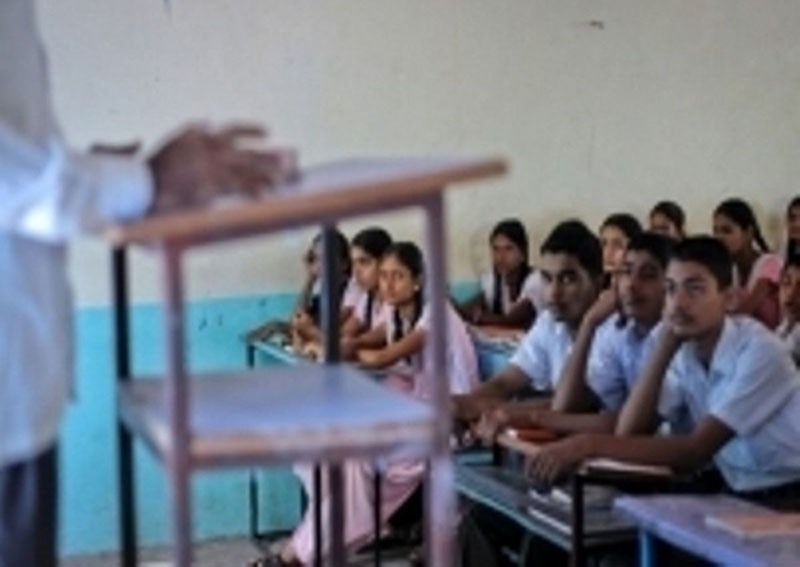If the National Education Policy (NEP) 2020 unveiled on July 29 is not deficient on anything, it is pious professions to provide equitable access to education that would lead to an inclusive society. But it is only a careful reading that reveals the real agenda of exclusivising education, imparting it a hierarchy akin to the caste structure of the society and limiting its access to the privileged few classes who have been uncomfortable with caste-based reservation during the post-independence years. Buried under the heavy jargon and pleasant platitudes, it takes a little effort to uncover the meaning of several of the aims the current dispensation at the Centre promises to achieve.
It is very well known that Education is on concurrent list with the Centre and the States both shouldering the responsibility to make it accessible. The new Policy 2020 strives to homogenize it across the nation, caring two hoots for the needs of the cultural and economic diversities it needed to address a country that is mosaic of diverse cultures. On another level, it tries to give a push to agenda of the World Bank and MNCs who are eyeing the vast opportunities India offers for the Internet-related technologies, computer, spares and the components related to the cyber technology. Thirdly, under the guise of cultural rootedness it opens the floodgates for content that would reverse the trajectory of education being a tool for nurturing social equality, equity and respect for nation’s diversity.
Till May 1, the NEP did not talk of online education in the document on the website of the Ministry. It was an afterthought and suddenly appeared in the document and the Prime Minister began talking of online teaching enhancing the quality of education and making it world class. Need for this new push for online education became clear when Google’s CEO announced an investment of $4.5 billion in Jio Platforms Ltd, the digital arm of Reliance Industries Ltd on July 14. Things began to move fast thereafter. On July 6, the University Grants Commission (UGC) passed an order that the Universities across the country should conduct UG and PG exams by September 2020 in online mode. In doing this, UGC overturned its earlier order that universities would be free to conduct or to not conduct exams in keeping with the circumstances in their states in the wake of Covid-19 pandemic. Thus the State Governments which mainly control and regulate the affairs of the universities were totally ignored. Immediately following this order, a US-based MNC came out with a report that online education business worth $15 billion (Rs. one lakh crore) in India was up for grabs. All this makes it manifest that Covid-19 pandemic has been used to exploit the situation to foist edu-tech on a nation where digital inequality is all likely to turn education into a luxurious commodity for the poor. Analysts see the corporatization of education at a time physical hiatus has been necessitated by a pandemic.
According to Prof. Anil Sadgopal, former dean, Faculty of Education, University of Delhi and founder of the Kishore Bharti in Hoshangabad (Madhya Pradesh), NEP is anti-constitution as it will only make education inaccessible for 85% of the nation’s population, most of whom would be poor, inhabitants of rural areas and will have no access to expensive computer technology, will be out of the loop of Internet and where supply either does not exist, is unreliable and if supplied is of inferior quality (low voltage). And most of these would be from scheduled castes, scheduled tribes, OBC and from the minority communities.
Prof. Sadgopal who addressed a webinar organized by Pune based NGO Lokayat told a nationwide audience that online education would be out of bounds for 65% urban and 83% rural children who have no access to Internet. Quoting the NSSO survey 2017, he said in Madhya Pradesh only 2.7% families had a computer. He linked the more exit points being provided in the planned 4-year undergraduate course to the probability being foreseen by the educational planners that more and more students would develop disinterest in education due to either unavailability of the edu-tech appliances or absence of classroom ambience.
Prof. Sadgopal’s observations are not to be overlooked. Former Karnataka Chief Minister H. D. Kumaraswamy too has expressed apprehensions pertaining to the push for online teaching. He says in the prevailing digital inequality, it was meaningless to talk about switching over to online teaching. Moreover, pedagogy involves body language, facial expressions and movement of eyes. The children also absorb half the learning through interaction with their co-learners.
The NEP says there were 3.22 crore out-of-school children among those falling between 6 to 17 years in 2017-18 (as per NSSO). The General enrolment ratio (GER) for Grades 6-8 was 90.9%; for Grade 9-10 and 11-12, it was 79.3% and 56.3% respectively. The statistics portray abysmal picture of the vertically tapering column of enrolment. There is no prize for guessing what lies in store now that the NEP pushes the system towards edu-tech and online teaching.
The cultural rootedness as mentioned in the NEP 2020 refers to merely those ancient gurus and intellectual resources that reinforce casteism, patriarchy and gender injustice. Sources and traditions that struck at the caste hierarchy, stressed equality and inclusiveness such as Kabir, Guru Nanak, Mahaveer, Mahatma Jyotiba Phule, Ambedkar have totally been ignored. These are no innocent omission. Evidently, the framers of the policy are clear in their mind as to who represents ‘the ideal India’ and who are the interpreters of idea of India?
M.A.Siraj is an accomplished journalist based in Bengaluru

